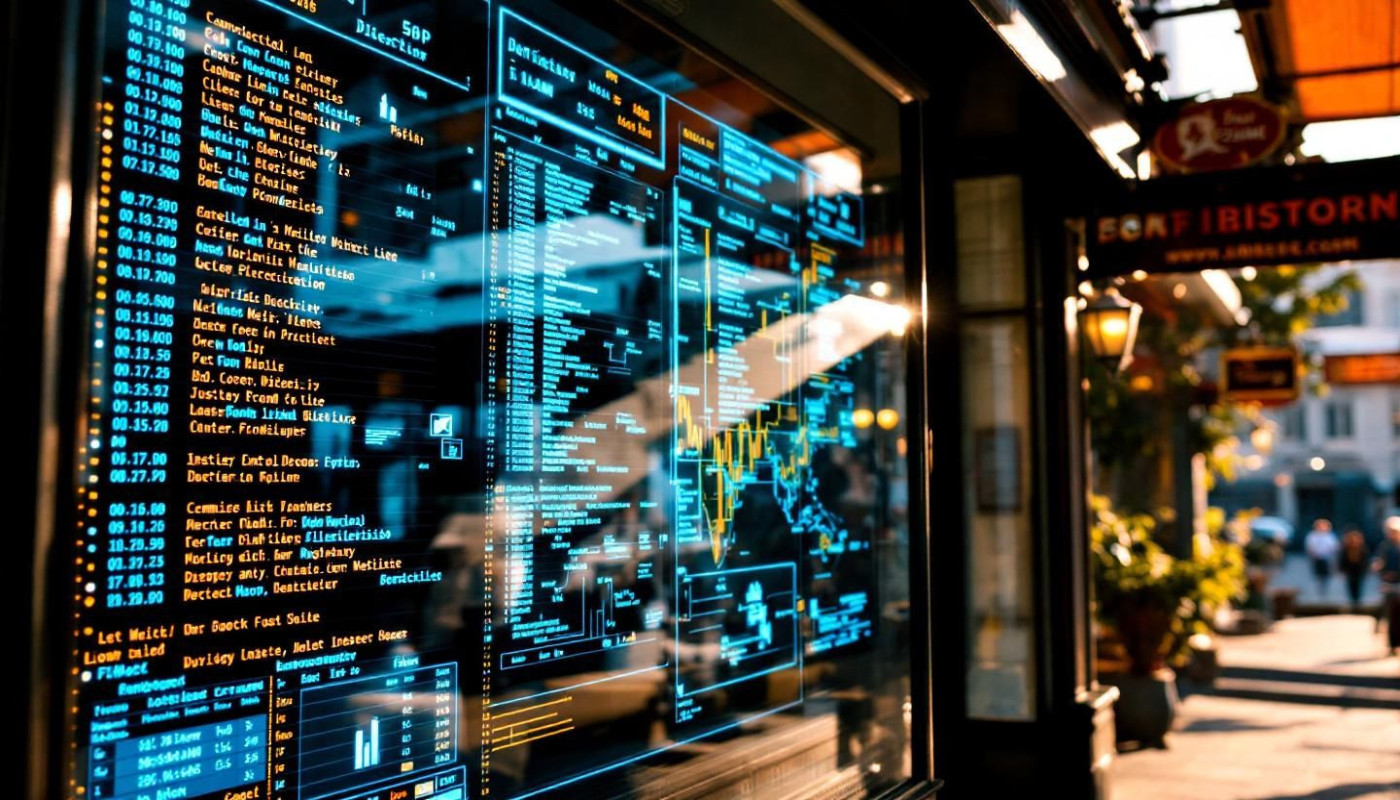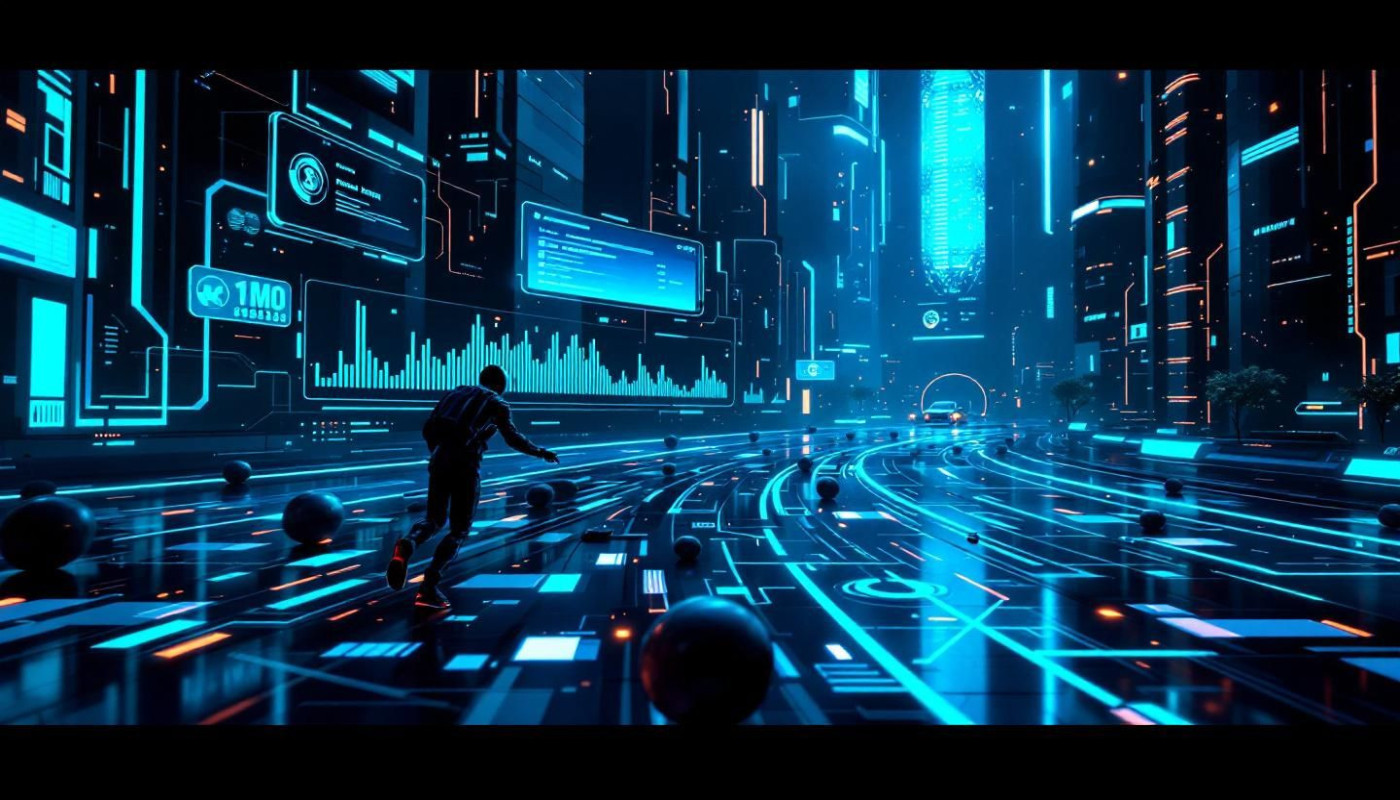Table of contents
The digital landscape in Brazil is a vibrant tapestry of online entertainment that constantly evolves to satiate the appetites of its diverse audience. From streaming content that captivates with its cultural richness to interactive platforms that engage users in novel ways, this arena is a reflection of the country's dynamic spirit. Whether you're a casual browser or a dedicated digital connoisseur, the unfolding trends in Brazilian online entertainment platforms are sure to pique your curiosity and offer a glimpse into the future of digital leisure. Let's delve into the heart of Brazil's virtual festivities and uncover the latest trends that are capturing the imaginations of millions.
Immersive Streaming Experiences
Interactive streaming has taken a significant leap forward, reshaping the landscape of Brazilian online entertainment platforms. These digital arenas are ingeniously integrating interactive elements, elevating user engagement to unprecedented levels. Audiences are no longer passive consumers but active participants, influencing the narrative flow and unlocking personalized content pathways. Technological advancements play a pivotal role in this evolution, with Brazilian platforms tapping into sophisticated algorithms and innovative features to offer a truly immersive content experience. One manifestation of this is the 'second screen experience' phenomenon, where users interact with additional content on a separate device, enriching the primary viewing session. This interactive layer not only caters to the escalating demand for digital leisure but also fortifies the platforms’ position in a competitive market—all while setting a new standard for immersion in online entertainment.
Esports and Gaming Platforms
The landscape of Brazilian online entertainment has been revolutionized by the rapid expansion of esports and gaming platforms. This surge in esports growth underlines the rising popularity of competitive play and the online gaming community, which has flourished in Brazil. These platforms are not just arenas for gaming battles; they integrate social components that foster community interaction, allowing players to build networks, share strategies, and form teams. The significance of the esports industry extends beyond mere gameplay. It is actively shaping the entertainment culture, turning gaming into a spectator sport that garners millions of viewers for major tournaments.
Intrinsic to this transformation is the concept of gamification, which has been deftly employed by platforms to increase user engagement. Gamification applies game-design elements in non-game contexts, enhancing the user experience and making the online environment more interactive and enjoyable. As a testament to the dynamic nature of this industry, brands like Spinwiz are emerging, demonstrating how the fusion of technology, entertainment, and social networking is creating novel opportunities for both players and businesses alike. The impact of esports on entertainment culture in Brazil is profound, continually evolving to captivate a nation passionate about the digital world.
Mobile Entertainment Surge
The swift expansion of mobile entertainment platforms in Brazil mirrors a global trend where accessibility and convenience of smartphones catalyze their emergence as the primary devices for consuming online content. With the country's high mobile penetration rates, users are increasingly turning to their handheld devices for entertainment, ranging from streaming services to gaming apps. In response to this shift, platforms are keenly adapting their strategies to cater to a mobile-first audience, prioritizing seamless user experiences on smaller screens. Techniques such as mobile optimization—which ensures websites and apps are designed for optimal performance and navigation on mobile devices—are now a standard. This adaptation not only enhances user engagement but also ensures that the vast array of online content is at the fingertips of consumers, who demand quick, efficient, and uninterrupted access to their entertainment choices. As a mobile technology consultant, I've observed firsthand how these strategic adaptations are not just beneficial but indispensable in maintaining competitive edge within the bustling Brazilian online entertainment landscape.
Local Content Creation Boom
The Brazilian digital landscape is currently experiencing a substantial increase in local content creation, transforming online platforms into vibrant arenas where the country's rich tapestry of talent and cultural heritage is on full display. This burgeoning movement is a testament to the phenomenon of content democratization, wherein barriers to entry for creators are lower than ever, allowing for a more diverse range of voices to be heard. User-generated content, a cornerstone of this creative revolution, is not just a means of entertainment but also a powerful tool for cultural expression and the promotion of the unique perspectives that define Brazil's social mosaic. As a result, a cultural commentator with a deep understanding of Brazilian media and entertainment might note that these digital venues not only serve to entertain but also play a pivotal part in nurturing and broadcasting Brazilian talent to a global audience, thereby enriching the worldwide cultural dialogue.
Virtual Reality and Augmented Reality Integration
Virtual reality integration and augmented reality experiences are revolutionizing Brazilian online entertainment platforms, offering users transformative entertainment that seamlessly melds physical and digital worlds. These immersive technologies allow users to interact with content in ways that were once the realm of science fiction. As technology potential grows, so too does the ability to create deeply engaging and interactive experiences for users. In the context of mixed reality—a technical term that encompasses both VR and AR—there is a burgeoning trend where users can experience real-world environments augmented with digital overlays or be completely immersed in a fabricated digital space. This integration is not only enhancing gaming and social interactions but also expanding to sectors like education and commerce, indicating a future where the boundaries between our physical reality and digital enhancements are increasingly blurred.
Similar

The Impact Of Community Support On Local Firefighting Services

How €10 Casinos Are Transforming Modern Photography Projects

Exploring The Impact Of Game Variety On User Satisfaction In Online Casinos

Exploring The Impact Of Digital Directories On Traditional Industries

Exploring The Impact Of AI On Predictive Sports Betting In 2025

Understanding RTP: What It Means For Online Casino Players

Exploring The Appeal Of Casinos Unaffiliated With Self-Exclusion Programs

How Modern Online Gaming Platforms Enhance User Experience With Rich Bonuses?

Step-by-step Guide To Mastering Chicken Road Game Strategies

Strategies For Winning At Online Chicken Crossing Games

Exploring The Popularity Of Trending Online Money Games

Comparative Analysis Of Mobile Apps And Browser Versions For Online Gambling

Exploring The Evolution And Impact Of Digital Art On Modern Culture

Comprehensive Guide To Understanding 243-Ways Slot Mechanics

Exploring Traditional Japanese Crafts Through Modern E-commerce Platforms

Mastering The Art Of Crash Games: Strategies And Tips

Effective Budget Management Tips For Plinko Players

Unveiling The Excitement Of Digital Currency In Aussie Online Gambling

The Future Of Augmented And Virtual Reality In Online Gaming

Exploring The Benefits Of Low Deposit Options In Online Casinos

Exploring The Popularity Of Free Online Casino Games

Exploring The Impact Of Technology On Modern Betting Systems

Integrating SEO And Content Marketing: Tips For A Synergistic Approach

The Evolution Of Welcome Bonus Structures In Canadian Online Casinos

